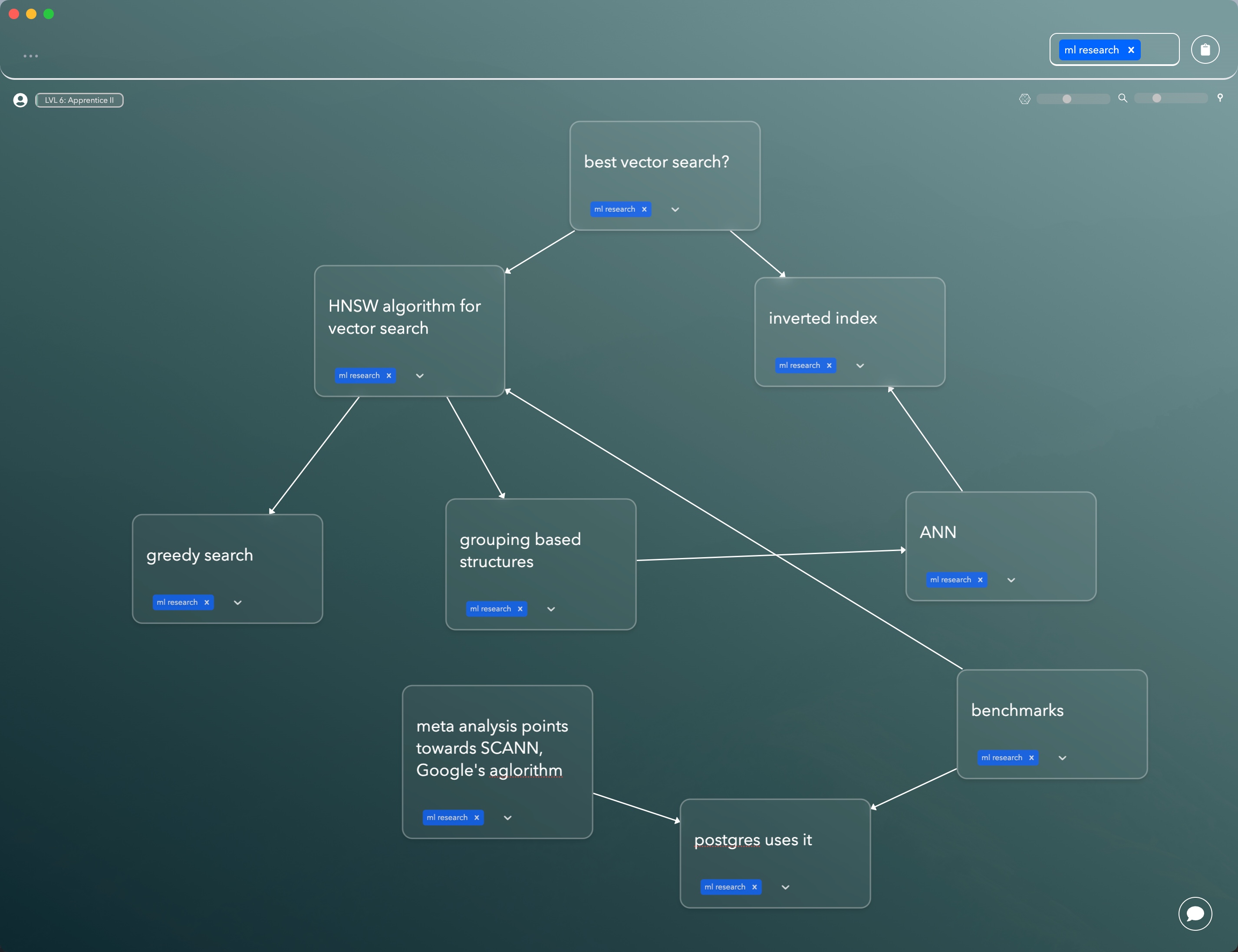Researchers
Connecting ideas together to discover new information is the key to research.
As Isaac Newton says, we stand on the shoulder of giants, but with more and more information being pumped out, there is so many different ideas it becomes confusing.
Unlike the past, we don't just have a few theories, but rather a whole universe of interconnected and sometimes contradictory ideas and theories.
Constella not only helps you add ideas, but helps you draw connections between ideas. Unlike static mind maps or visualizations that lock you into a single file and unable to then use those connections again, Constella is a dynamic visual graph that will pull related notes and their connections based on what you are currently thinking about.
By organizing ideas and connections for you, Constella lets you focus on learning and integrating more and more research

Thinking syllogistically
Oftentimes in research we encounter the scenario where one idea links to another, then that idea relates to something else, but at the same time another idea points towards a previous idea, and then we often lose track of how it all connects together.
By storing connections between nodes, over time, you will see these connections playing out visually in front of you and then you will be able to start having brilliant realizations without having your head hurt from the sheer amount of scattered information.
And by giving your brain a helping companion, this boosts your thinking and helps take your brain to another level.
Some people believe that if you use a powerful tool like Constella, your brain will get limited as it's not manually organizing itself. This is a myth because when your brain has an additional companion to do all the manual work, now your brain can move on to harder problems as you unlock insights. This creates a new set of challenges for your brain and instead of growing rote memorization and combatting forgetfulness, your brain can focus more on deep thinking and creative problem solving. This myth is similar to those teachers who say that if you use a computer, you will not be able to think.
Computers have contributed to our ability to think, and while research does show our memory has decreased since computers and Google can remember things for us, it has been a worthwhile trade-off in favor of increasing our ability to think — especially with AI evolving, we need to be able to think better and not be limited by self-imposed constraints.